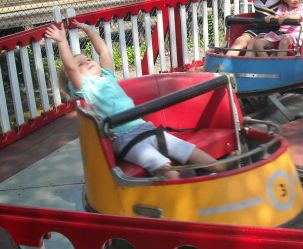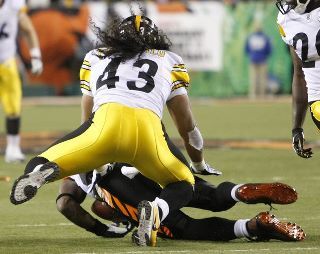Post by misty on Jan 6, 2007 16:59:36 GMT -5
Thread Started on Jul 2, 2006, 1:35am
Here are some GREAT ideas I recieved in a newsletter. I thought it would be good to post them. Anyone that thinks their child may benefit could print them out to share with the teachers!
Here are some tips on Improving Social Skills:
Provide a safe environment for the child. Make sure
the child knows you are his friend and you are there
to help him. Treat him with respect. Never belittle him
in front of his peers. Both he and the other children
know that he stands out, and if the teacher belittles
the child, then the rest of the children will see
that as permission from the teacher to belittle the
child as well.
Enlisting the support of peers in the classroom can
greatly enhance your student's self-esteem.
Students with good social awareness and who like to
be helpful can be paired with him. This pairing can
take the form of being a "study buddy",
doingactivities/projects, or playing on the
playground. Cross-age tutoring with older or younger
students can also have social benefits. Most
successful pairing is done with adequate preparation
of the paired student, planning meetings with the
pair to set expectations, and with parental
permission.
Small
student groupings of three to five members, in which
the students "sink or swim" together to complete
assignments/projects, encourage students to share
organizational ideas and responsibilities, and gives an
ideal setting for processing interpersonal skills on a
regular basis.
Small "play groups" of two to four students can help
your student to develop more effective social skills.
These groups are most effective if socially
competent peers are willingly included in the group.
The group should be focused on activities that stress
interaction and cooperation.Your student would benefit most when
the target social skills are identified and practiced
with them prior to the activity and processed after
the activity.
A subtle way for your student to learn social skills is
through the use of guided observation of his peers on
the playground. Accompany them on to the
playground and point out the way other students
initiate activities, cooperate in a game, respond to
rejection, deal with being alone, etc.
Restricting the area available for your student during
recess can increase the contact with adult
supervision and lessen the complexity of social
decision-making. This can be done privately with
your student prior to recess. Many students welcome
this manner of simplifying their social interactions
during this period of low structure.
It is helpful to meet with your student prior to his
lunchroom/playground period to review his plan for
recess activity and with whom he will sit during lunch.
Have him ask peers in advance of the recess block to
do a certain activity with him. Process the activity
with your student after recess and make suggestions
for the following day.
Here are some GREAT ideas I recieved in a newsletter. I thought it would be good to post them. Anyone that thinks their child may benefit could print them out to share with the teachers!
Here are some tips on Improving Social Skills:
Provide a safe environment for the child. Make sure
the child knows you are his friend and you are there
to help him. Treat him with respect. Never belittle him
in front of his peers. Both he and the other children
know that he stands out, and if the teacher belittles
the child, then the rest of the children will see
that as permission from the teacher to belittle the
child as well.
Enlisting the support of peers in the classroom can
greatly enhance your student's self-esteem.
Students with good social awareness and who like to
be helpful can be paired with him. This pairing can
take the form of being a "study buddy",
doingactivities/projects, or playing on the
playground. Cross-age tutoring with older or younger
students can also have social benefits. Most
successful pairing is done with adequate preparation
of the paired student, planning meetings with the
pair to set expectations, and with parental
permission.
Small
student groupings of three to five members, in which
the students "sink or swim" together to complete
assignments/projects, encourage students to share
organizational ideas and responsibilities, and gives an
ideal setting for processing interpersonal skills on a
regular basis.
Small "play groups" of two to four students can help
your student to develop more effective social skills.
These groups are most effective if socially
competent peers are willingly included in the group.
The group should be focused on activities that stress
interaction and cooperation.Your student would benefit most when
the target social skills are identified and practiced
with them prior to the activity and processed after
the activity.
A subtle way for your student to learn social skills is
through the use of guided observation of his peers on
the playground. Accompany them on to the
playground and point out the way other students
initiate activities, cooperate in a game, respond to
rejection, deal with being alone, etc.
Restricting the area available for your student during
recess can increase the contact with adult
supervision and lessen the complexity of social
decision-making. This can be done privately with
your student prior to recess. Many students welcome
this manner of simplifying their social interactions
during this period of low structure.
It is helpful to meet with your student prior to his
lunchroom/playground period to review his plan for
recess activity and with whom he will sit during lunch.
Have him ask peers in advance of the recess block to
do a certain activity with him. Process the activity
with your student after recess and make suggestions
for the following day.




